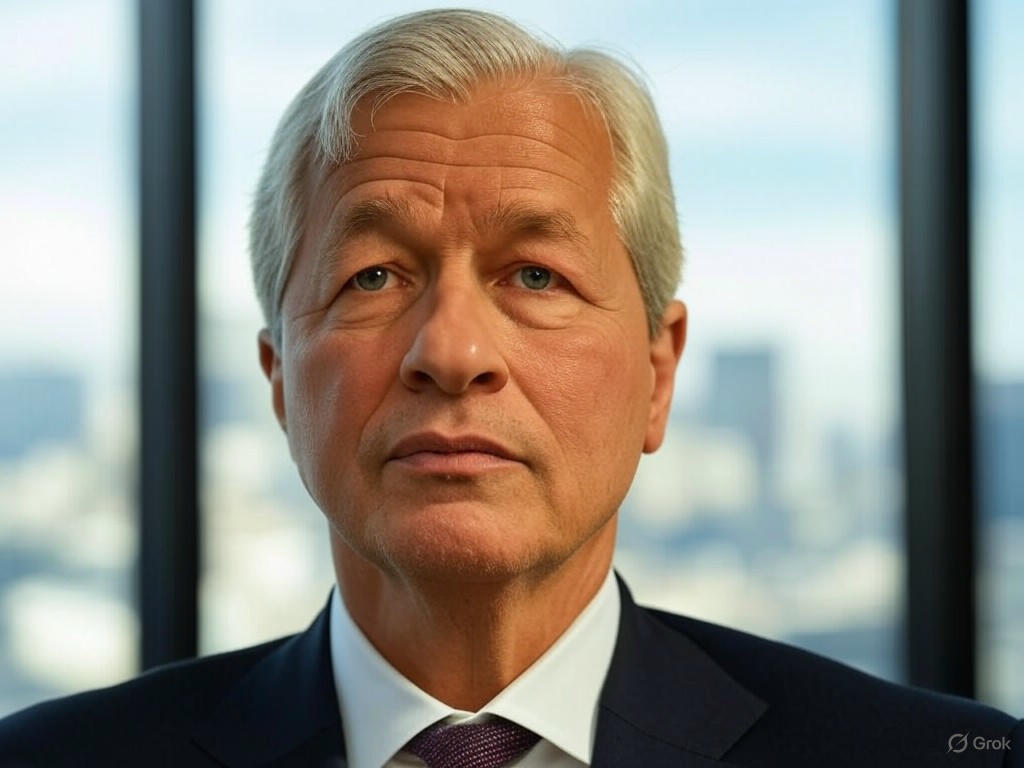In a stark warning that has reverberated through financial circles, Jamie Dimon, the influential CEO of JPMorgan Chase, has raised concerns about the potential downturn of the U.S. economy. Speaking at a recent industry event, Dimon highlighted the risks posed by ongoing trade policies, particularly the tariffs imposed under President Donald Trump’s administration. While recent economic indicators have painted a relatively rosy picture, Dimon cautioned that these figures could be deceptive, masking underlying vulnerabilities that may soon surface with significant consequences.
Dimon’s apprehension stems from the ripple effects of tariffs, which have been a cornerstone of Trump’s economic strategy to protect domestic industries. These levies, while aimed at bolstering American businesses, have increased costs for consumers and strained relationships with key trading partners. Businesses, especially in sectors like manufacturing and retail, are grappling with higher input costs, which could ultimately lead to reduced profitability and slower growth. Dimon emphasized that the burden of these tariffs often falls on the end consumer, potentially dampening spending—a critical driver of economic activity. If consumer confidence wanes, the broader economy could face a cascading series of challenges, from reduced corporate earnings to potential job cuts.
Moreover, the uncertainty surrounding trade policies has created a cautious atmosphere among investors and corporate leaders. Companies are hesitant to make long-term investments or expand operations amid fears of escalating trade tensions. Dimon pointed out that this hesitancy could stifle innovation and hinder the economic momentum that has been evident in recent quarters. He urged policymakers to consider the long-term implications of such measures, advocating for a balanced approach that fosters both domestic growth and global cooperation. Without a strategic recalibration, Dimon fears that the economy could slide into a period of stagnation or even recession, undoing years of progress.
The timing of Dimon’s warning is particularly noteworthy, as it comes at a juncture when many analysts are debating the sustainability of current economic trends. While unemployment remains low and stock markets have shown resilience, cracks are beginning to appear in the form of declining manufacturing data and geopolitical uncertainties. Dimon’s voice, given his track record of navigating JPMorgan Chase through turbulent times, carries significant weight in these discussions. His comments serve as a reminder that economic health is not solely about present gains but also about preparing for future challenges.
As the debate over tariffs and trade policies continues, Dimon’s cautionary stance invites reflection on how best to safeguard economic stability. While immediate data may offer reassurance, the potential for deterioration looms large. Policymakers, businesses, and consumers alike must heed such warnings and work collaboratively to address the risks ahead. Only through proactive measures and thoughtful dialogue can the nation hope to weather the storms that Dimon and other experts foresee on the horizon, ensuring that short-term gains do not come at the expense of long-term prosperity.
